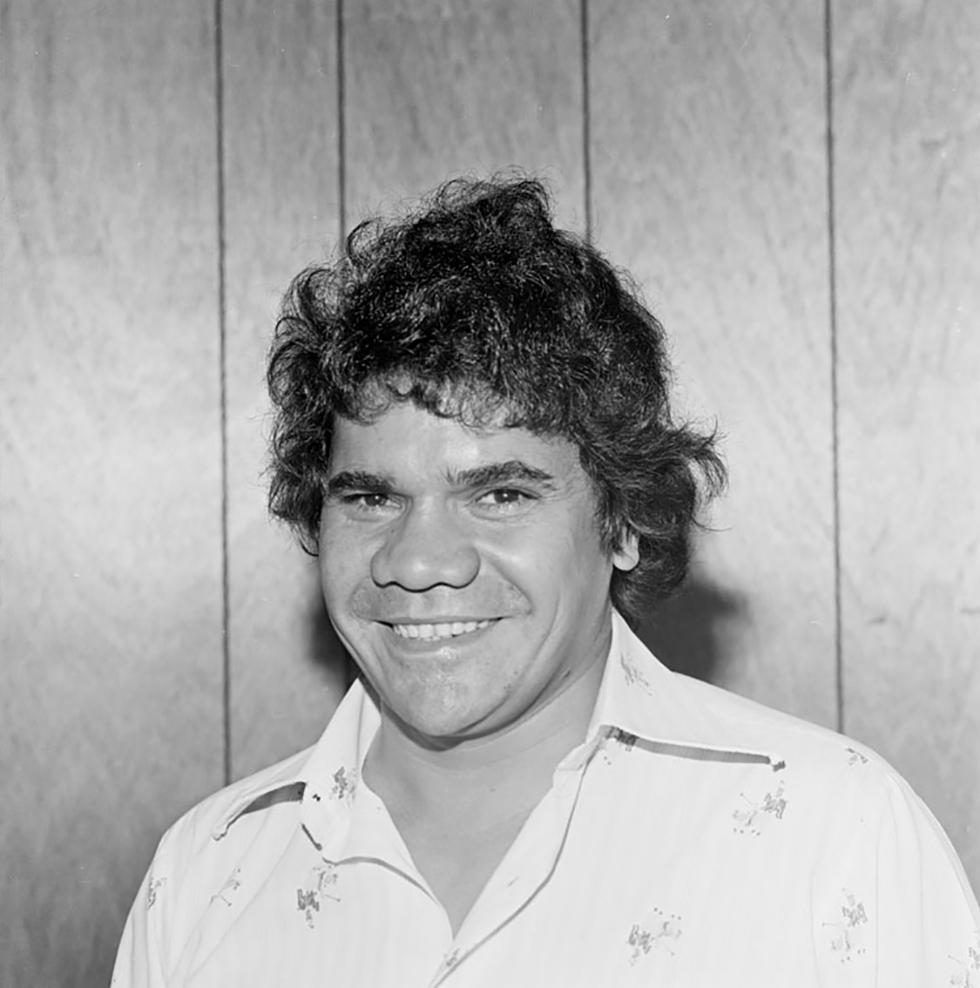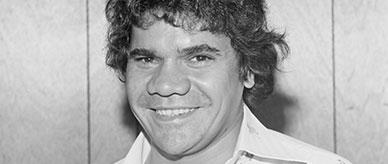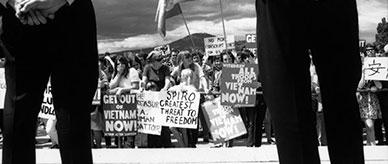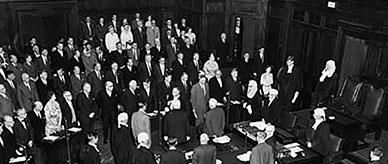


About this record
This black-and-white photograph shows Michael ‘Mick’ Dodson, an Aboriginal lawyer, academic and advisor to governments. The photograph was taken in 1980 and shows Dodson while he was working as a lawyer with the Victorian Aboriginal Legal Service. He is casually dressed and is smiling warmly.
Educational value
- Mick Dodson is best known for his campaigns, as a lawyer, to secure and improve the legal rights of Aboriginal and Torres Strait Islander peoples. He has represented their interests across a range of issues from the time he began legal practice with the Victorian Aboriginal Legal Service in Melbourne in 1976. He has devoted particular attention to land rights and native title rights. In 2003 he was awarded the Medal of the Order of Australia (AM) for services to the Aboriginal and Torres Strait Islander community. He was named Australian of the Year in 2009.
- Dodson’s impressive legal career includes his:
- appointment as barrister to the Victorian Bar in 1981
- roles as Senior Legal Advisor to, and Director of, the Northern Land Council (1984 and 1990)
- appointment as the first Aboriginal and Torres Strait Islander Social Justice Commissioner with the Human Rights and Equal Opportunity Commission (1993–98)
- role as Counsel assisting the Royal Commission into Aboriginal Deaths in Custody (1988–90).
- Dodson’s advocacy for land rights and other issues affecting Aboriginal and Torres Strait Islander peoples is underpinned by his belief that these are matters of human rights. In particular he equates land rights with the rights of equity, non-discrimination and the prohibition of racial discrimination. He has argued for the formal recognition in the Constitution of Australia of Aboriginal and Torres Strait Islander peoples as the original owners, occupiers and custodians of the land.
- Dodson’s achievements in law and other areas of social and political life represent a triumph over the difficulties of his early life. He was born in the Northern Territory and is a member of the Yawuru people near Broome in Western Australia. Following the untimely death of his parents, Dodson’s aunt and uncle fought for and won custody of Dodson and his siblings. In 1963 Dodson earned a scholarship to Monivae College (a boarding school) in Victoria. Dodson then attended Monash University and graduated from law school in 1978. He was admitted to the Victorian Bar in 1981.
- Dodson’s broad-ranging career also reflects his varied role as advocate—beyond the area of the law—for Aboriginal and Torres Strait Islander peoples. His work as professor at the Australian National University College of Law; his role as public speaker; and his contribution as delegate at various United Nations forums has allowed his concerns for Aboriginal and Torres Strait Islander peoples to be shared more widely. Dodson has also devoted his time to the welfare and education of Aboriginal and Torres Strait Islander youth.
- Dodson’s vigorous advocacy of the rights and interests of the Aboriginal and Torres Strait Islander peoples extends to Indigenous peoples around the world. He has worked extensively for the United Nations, serving on committees and in roles that have included the co-deputy chair of the Technical Committee for the 1993 International Year of the World’s Indigenous People. In 2004 he became a member of the United Nations Permanent Forum on Indigenous Issues.
Acknowledgments
Learning resource text © Education Services Australia Limited and the National Archives of Australia 2010.
Related themes
Need help with your research?
Learn how to interpret primary sources, use our collection and more.



